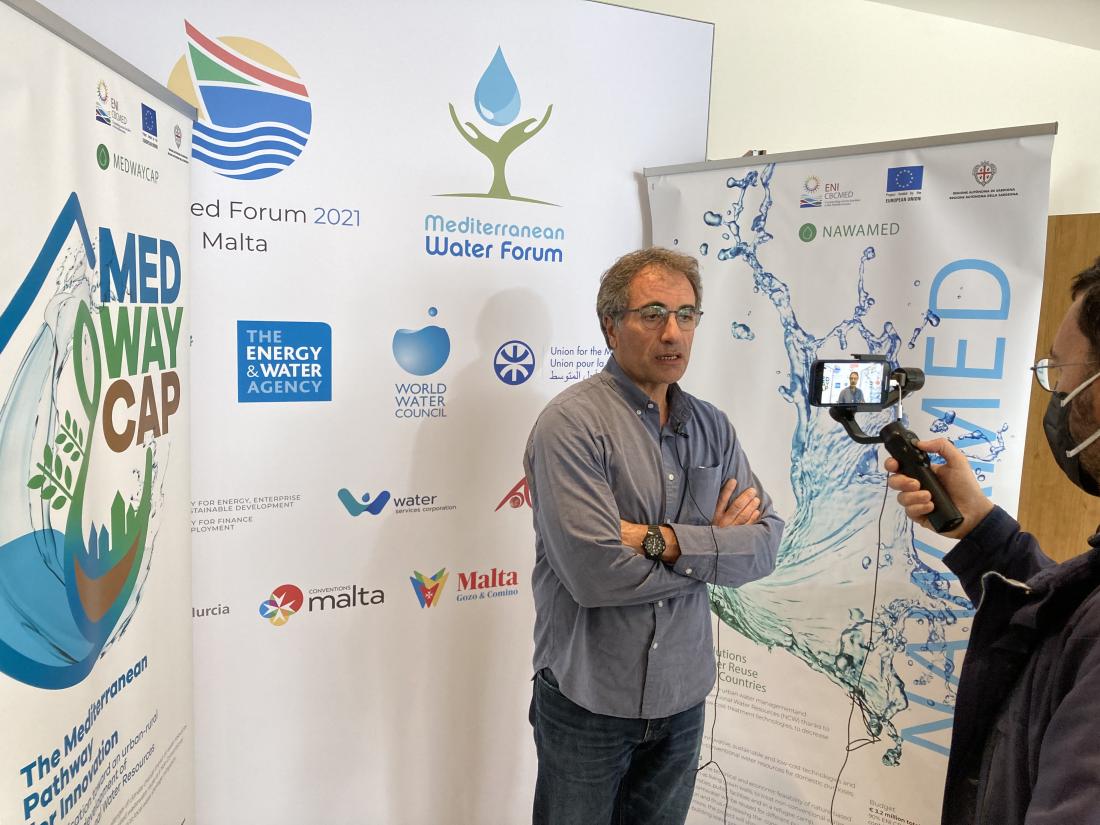NAWAMED: “The leverage of cultural acceptance on water reuse” - Yaser Abunnasr, Associate Professor of Landscape Architecture and Planning at the American University of Beirut

The Euro-Mediterranean Centre for sustainable development– SVI.MED, partner in NAWAMED and MEDWAYCAP projects, attended the 4th Mediterranean Water Forum (MWF) in Malta last December to share its knowledge and establish new connections with potential international partners. A set of interviews with a number of speakers were conducted during the event to identify ways to promote innovative solutions and technologies that can improve water efficiency, starting with the reuse of treated wastewater.
The MWF has been organized by the Water&Energy Agency - EWA of Malta, partners with SVI.MED in both projects, the Institut Méditerranéen de l’Eau - IME and the Union for the Mediterranean - UfM.
It is extremely important to work on non-conventional water resources, and the reason is that we are in the Mediterranean, and everyone knows that we are already in a water-scarce situation in general. And with climate change coming in, we are facing increasing problems like less precipitation and more desertification as well
This means that our natural freshwater supplies will become increasingly scarce as we move forward in the future with a growing population and increased demand.
From that perspective, it is extremely important to look at these alternative sources to ensure the continuity of humanity at the global scale, and the quality of life of communities within cities, towns and villages around the world
Looking at the weaknesses and strengths of non-conventional water resources, professor Abunnasr highlighted that there are many elements to evaluate, but one in particular is decisive.
I would say there are many. If we look at the advantages and the opportunities, number one would be safeguarding any additional freshwater resources, which means that we can reserve that fresh water content for the future. That's extremely important.
Non-conventional water sources are also important
not necessarily for domestic use, because when we have those alternative sources that can be used for irrigation, for flushing, this means that they don't need to be at the same level of cleanliness
Another good reason would be supporting decentralization of water systems, “which means that things don't need to be centralized in one authority or in one source".
The weaknesses are somewhat cultural. People have difficulty accepting that they are using a water that was sewage and has been cleaned.
At the level of governance and policy as well, there are lot of barriers to accept that those non-conventional resources will become conventional source of water. That's also another challenge. Financing is the third challenge. Ensuring that there are available resources for the common person is our eventual objective
The MWF enabled both NAWAMED and MEDWAYCAP rojects to gain a better understanding of the pathway to strengthen the value and impact of innovative integrated Non-Conventional Water Resources management solutions through a Mediterranean Alliance for a collective learning towards effective policies and innovation processes.
If you look at finances and policy in a normal country, these usually respond to demand, so if we are able to ensure that there is enough cultural awareness and enough education for people to demand the use or the production of non-conventional water resources. I would say that policy and finance will automatically follow. In other words, if we continue with the bottom-up pressure from people for non-conventional resources, policy and finance would follow eventually if people are really aware. Cultural acceptance would be a primary leverage in that area
Watch a clip of the video interview here







